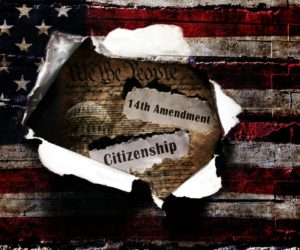
Ms Aung San Suu Kyi, 65, described as Burma’s Mandela, is no longer under house arrest. The Burmese military junta set her free on Saturday and she was greeted by thousands of her supporters. “I’m very happy to see you all again,” she told the crowd gathered near her lakeside home in Yangon, the capital of Myanmar. (See video here…)
U.S. President Barack Obama said: “I admire Suu Kyi’s courage. She is a hero of mine and a source of inspiration for all who work to advance basic human rights in Burma and around the world. The United States looks forward to the day when all of Burma’s people are free from fear and persecution (Burma still has 2,202 political prisoners).
” ‘While the Burmese regime has gone to extraordinary lengths to isolate and silence Aung San Suu Kyi, she has continued her brave fight for democracy, peace, and change in Burma,’ Obama said in a statement Saturday. Benjamin Zawacki, Amnesty International’s Myanmar specialist, said it made ‘perfect sense’ for the regime to free her since she was no longer an electoral threat to them.
“The Burma Campaign UK, which promotes human rights in Myanmar, accused the ruling junta of rigging the November 7 election. The group welcomed Suu Kyi’s release but warned that it should not be interpreted as a sign that democratic reform is on the way.
“The Nobel Peace Prize laureate has spent 15 of the past 21 years under house arrest for her dogged opposition to authoritarian military rule in the nation formerly known as Burma.” More here…
The NDTV reports: “The release from house arrest of one of the world’s most prominent political prisoners came a week after an election that was swept by the military’s proxy political party and decried by Western nations as a sham designed to perpetuate authoritarian control.
“Suu Kyi has been largely cut off from the outside world, with no telephone or Internet access and just two female aides for company, apart from occasional visits from her doctor and lawyer.
“Oxford-educated Suu Kyi entered Myanmar’s political arena at a relatively late stage, after spending much of her life abroad in India and then Britain, but politics was always in her blood. The daughter of Myanmar’s liberation hero General Aung San, who was assassinated in 1947, she returned to Yangon in 1988 to nurse her sick mother, as protests erupted against the military and were brutally crushed.
“She was quick to take on a leading role in the pro-democracy movement, petitioning the government to prepare for elections and delivering speeches to hundreds of thousands of people at the city’s glittering Shwedagon Pagoda. Alarmed by the support she commanded, the generals ordered her first stint of house arrest in 1989. Her most recent stretch of forced isolation began in May 2003 after a deadly attack on her convoy by supporters of the junta.” More here…
In her captivity, she had been spending her days reading, in Myanmarese and English, philosophy, biographies and novels. John le Carre and Georges Simenon are favourites. She was once a keen pianist, but the muggy heat has warped her piano. How did Aung San Suu Kyi spend her life in captivity… See here…
UPDATE: This cartoon has just come in:

Swaraaj Chauhan describes his two-decade-long stint as a full-time journalist as eventful, purposeful, and full of joy and excitement. In 1993 he could foresee a different work culture appearing on the horizon, and decided to devote full time to teaching journalism (also, partly, with a desire to give back to the community from where he had enriched himself so much.)
Alongside, he worked for about a year in 1993 for the US State Department’s SPAN magazine, a nearly five-decade-old art and culture monthly magazine promoting US-India relations. It gave him an excellent opportunity to learn about things American, plus the pleasure of playing tennis in the lavish American embassy compound in the heart of New Delhi.
In !995 he joined WWF-India as a full-time media and environment education consultant and worked there for five years travelling a great deal, including to Husum in Germany as a part of the international team to formulate WWF’s Eco-tourism policy.
He taught journalism to honors students in a college affiliated to the University of Delhi, as also at the prestigious Indian Institute of Mass Communication where he lectured on “Development Journalism” to mid-career journalists/Information officers from the SAARC, African, East European and Latin American countries, for eight years.
In 2004 the BBC World Service Trust (BBC WST) selected him as a Trainer/Mentor for India under a European Union project. In 2008/09 He completed another European Union-funded project for the BBC WST related to Disaster Management and media coverage in two eastern States in India — West Bengal and Orissa.
Last year, he spent a couple of months in Australia and enjoyed trekking, and also taught for a while at the University of South Australia.
Recently, he was appointed as a Member of the Board of Studies at Chitkara University in Chandigarh, a beautiful city in North India designed by the famous Swiss/French architect Le Corbusier. He also teaches undergraduate and postgraduate students there.
He loves trekking, especially in the hills, and never misses an opportunity to play a game of tennis. The Western and Indian classical music are always within his reach for instant relaxation.
And last, but not least, is his firm belief in the power of the positive thought to heal oneself and others.
















